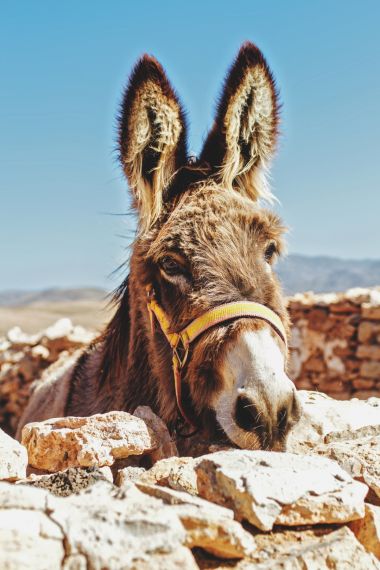The Donkey: How GK Chesterton radically retold Palm Sunday
Palm Sunday celebrates Christ's triumphant entry into Jerusalem, riding on a donkey with palms at his feet. But a famous poem illuminates the tale by embracing the perspective not of Jesus or the people, but the humble colt on which the Messiah rode.
The renowned author, journalist and Christian apologist GK Chesterton was the inspired mind behind a short poem that puts a new spin on Palm Sunday.
Titled simply 'The Donkey', it narrates, in the voice of the colt, its sad existence. An unimpressive creature, its 'monstrous head...sickening cry and ears like errant wings' render it 'the devil's walking parody'.

It is a 'tattered outlaw' to be starved and derided, but though it cannot speak, this outcast animal has seen wondrous things. The poem's final stanza gives us the revelation of this lowly animal's secret past:
'Fools! For I also had my hour;
One far fierce hour and sweet:
There was a shout about my ears,
And palms before my feet.'
GK Chesterton, a Catholic, explored theological and existential truths through fiction and poetry. For him, theology and imagination were intimately connected. As he wrote in Orthodoxy: 'I had always felt life first as a story: and if there is a story there is a story-teller.' His writing would later inspire the atheist CS Lewis to convert.
The story in this case grasps the easily forgotten absurdity of Palm Sunday: a prophesied King of Israel entered Jerusalem not on a throne or with an army at his side, but on a donkey. This animal, easily cast aside, has hosted majesty like no other creature has. The reverence this animal has for its Messianic rider challenges the audience: they're encouraged to recover the immense wonder in the familiar biblical scene.
There's a wider point not just about Easter but human life: we're invited to see in the lowly and unimpressive glimpses of glory and supreme dignity. All humanity is graced to be made in the image of God, and like Balaam's Ass in the Old Testament, its often through rejected, unexpected outsiders that God chooses to speak his wisdom.
In a society still so susceptible to surface-level judgements, confusing image and integrity, it's a timely warning from Chesterton. It's God – not human judgments – who gives creatures their glorious dignity.











